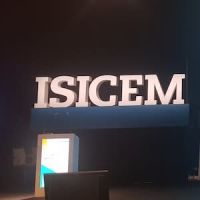Findings from the PROCOAG randomised clinical trial were presented for the first time during the #ISICEM23 opening.
The best way to manage transfusions in traumatic haemorrhage remains unclear. However, there are indications that using a 4-factor prothrombin complex concentrate (4F-PCC) could have a beneficial effect on blood product consumption.
The PROCOAG study aimed to evaluate the efficacy and safety of 4F-PCC administration in patients at risk of requiring massive blood transfusions. The study was a double-blind, randomised, and placebo-controlled clinical trial between December 2017 and August 2021 in 12 designated level-I trauma centres in France. It involved patients with trauma who were at risk of massive blood transfusions. The follow-up period ended on August 31, 2021.
Study patients were intravenously administered with either 1 mL/kg of 4F-PCC or 1 mL/kg of saline solution (placebo) to the patients. All patients received early ratio-based transfusion and were treated according to European traumatic haemorrhage guidelines. The ratio of packed red blood cells to fresh frozen plasma was between 1:1 to 2:1.
The study's primary outcome was the total consumption of blood products within 24 hours after treatment (efficacy). The incidence of arterial or venous thromboembolic events was a secondary outcome (safety).
The study initially included 4313 patients with the highest level of trauma activation, out of which 350 were eligible for emergency inclusion. In the end, 327 patients were randomised, with 164 receiving 4F-PCC and 160 receiving placebo. The participants' median age was 39, and most were men.
Study findings show no significant difference in the total 24-hour blood product consumption between the two groups. However, 35% of patients in the 4F-PCC group had at least one thromboembolic event, compared to 24% in the placebo group, indicating an increased risk of thromboembolic events associated with 4F-PCC administration.
Overall, these findings show that in patients with trauma at risk of massive transfusion, there was no significant reduction in 24-hour blood product consumption after the administration of 4F-PCC. However, the study did reveal an increased risk of thromboembolic events with the use of 4F-PCC. Therefore, the study's findings do not support the routine use of 4F-PCC in patients at risk of massive transfusion.
Source: JAMA
Image Credit: ISICEM
Presentation slides: From Dr Pierre Bouzat’s presentation @ISICEM23
References:
Bouzat P, Charbit J, Abback P et al. (2023) Efficacy and Safety of Early Administration of 4-Factor Prothrombin Complex Concentrate in Patients With Trauma at Risk of Massive Transfusion: The PROCOAG Randomized Clinical Trial. JAMA.


























